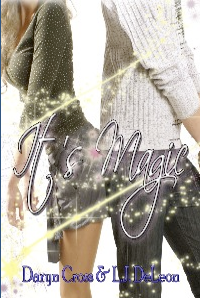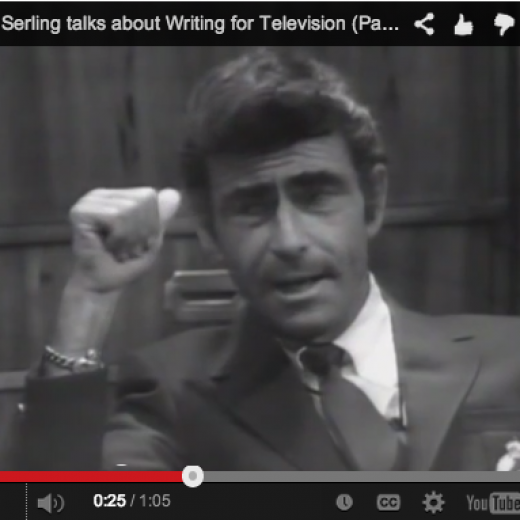The Care and Feeding of Characters: How to get them to speak in their natural and distinct voices
 Welcome to this week’s guest post from author, Bobbye Terry, wherein she shares about character voice, and makes fun of me…
Welcome to this week’s guest post from author, Bobbye Terry, wherein she shares about character voice, and makes fun of me…
*^*
Stop talking to me! You have to quit! Be quiet for now, I’ll get back to you. I mean it. I’m about to talk to my blog audience….
Oh, hi! I didn’t know you were here already. I was going to tell you not to pay attention to all the above and I’m not crazy, but you already know I’m schizophrenic from my last post, so the proverbial cat is out of the bag. Sorry for the interruption, it’s my characters again. They won’t stop arguing with me.
Not to burden you, but I must tell you Beth is one of those people who tries to reform us psychologically disturbed writers, so she’s allowed me to talk to you twice a month. Don’t give me that pained expression. Grin and bear it and count the time reading my blogs as community service.
Now that I have that out of the way, let’s talk character voice. Have you ever read a book and the characters all sounded the same or their actions were indistinguishable? If so, the writer did not assume the full identity of the character. I spoke about this recently on my own blog at www.DarynCross-fantasy.Blogspot.com.
You need to fully understand the character just like my own shrink understands me. Okay, maybe she’s just getting to the core of my issues, but you can do it sooner.
After all, you are your character’s creator. Look at how you crafted her past, look at what’s happened to the person since she was first hurt, what she holds dear, the things she loves the most. Those are all hot buttons. They help tell you how the character will react and what she will say.
What happens when you write a character against the personality of that person? Take it from the opening lines of one of my poems:
My characters are not too pleased,
With whom I’ve written them to be,
They’ve been grumbling, and they might
Form a union, go on strike.
They rebel and you fall flat. Dead end, writer’s block. You skid to a screeching halt in your book.
Words to the wise, stay in the skin of the person whose point of view you assume in a scene. Also, make sure your dialogue and dialect mirror that character. Here are a few of my characters at work:
“That was a miracle. I’m surprised we didn’t witness the second coming. My only explanation is the man had a death wish. After he married her, he went off to war the next day.” She shook her head again. “And when that didn’t kill him, he jumped out in front of a tractor-trailer on his first leave. Honest to God, if I didn’t know better, I’d swear the man did all of it just to keep from ever coming home to her. Better to go as out a hero or even an accident victim than die as a stupid horny fool.” ~ Trixie, This Magic Moment, yet to be published.
Now here’s another one:
“I encountered two vampirinas on my way out of the club. It’s gotten so you can’t go three miles away from home without worrying someone’s going to try and suck your blood. But my prize laser stake handled the situation. Too bad it leaves such a mess behind. Not like the regular method where the vamp simply explodes in a ball of kinetic energy.” ~Honey Blood Draper, Honey Blood and the Collector, coming soon.
Final one:
“Lesson number one: Don’t insult your date, especially about age and appearance. We tend to be touchy about those subjects. And we sure as hell don’t appreciate our dates laughing at us.”
~ Roarke Hawthorne, Mr. Wrong, Terry Campbell on Kindle
Notice the last one is straight to the point? A man. Men don’t talk in flowery elongated sentences. They’re short and to the point.
Notice the first one is a woman from a small Southern town?
The second one also lives in a small Southern town, same state, but she’s one of high society breeding and you can tell from the speech, she’s also a paranormal creature with special abilities.
The way a character speaks and acts, not just what he says, must demonstrate the position the character plays in life and his outlook on it.
Do you get it? I hope so, because the cacophony of voices in my ears is driving me crazy.
For now, that’s all I have time to do. I must battle the voices in my mind. A person has to sleep sometime, you know.
~~~~~~~~~~~~~~~~~~~~~~~~
Bobbye Terry. BE MINE, VALENTINE, 1/28/2011, Turquoise Morning Press (TMP)
In March: LAST WISHES, Black Opal Books (BOB); BURIED IN BRINY BAY (TMP)
w/a Terry Campbell: CRAIGS’ LEGACY, 2/11/2011 (BOB); Backlist on Kindle
w/a Daryn Cross, IT’S MAGIC, Crescent Moon Press







Oh, the voices. The voices! We’re plagued with them, right? And it’s really okay because, well, they are company to me. It’s either that or talk to the cats.
Great post, Bobbye. I know when the words that are coming out of my head, and are being laid down on the page, sound nothing like what I would say in actual life, that I’ve found my true character. It’s sort of like an out-of-body experience, and I might not even realize it until the prose is on the page and I read back over and go…huh? I wrote that?
Wow. I love being a writer. Thanks for sharing! I can’t wait to read what you’ve got coming up.
Thanks, Maddie!
That’s it exactly–I’m always amazed and what ends up on paper. I know I couldn’t have written it. 😉
Bobbye
Great point, Maddie, about the voice not at all sounding like your own. Yes, that’s exactly how it works for me too, and when the writing feels the most powerful. Thanks Bobbye for your fun insights into creating distinct character voices!
Bobbye, what a cute way to make your point. As uusual, you were spot on.
Thanks, Caroline, for weighing in.
Bobbye, Thanks for another great article! Readers can look forward to another useful tip from your world in two weeks!